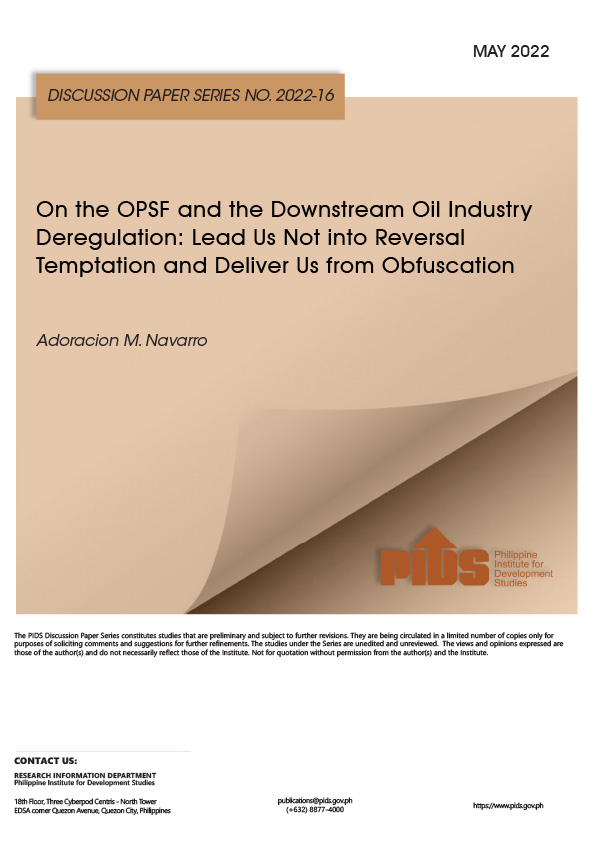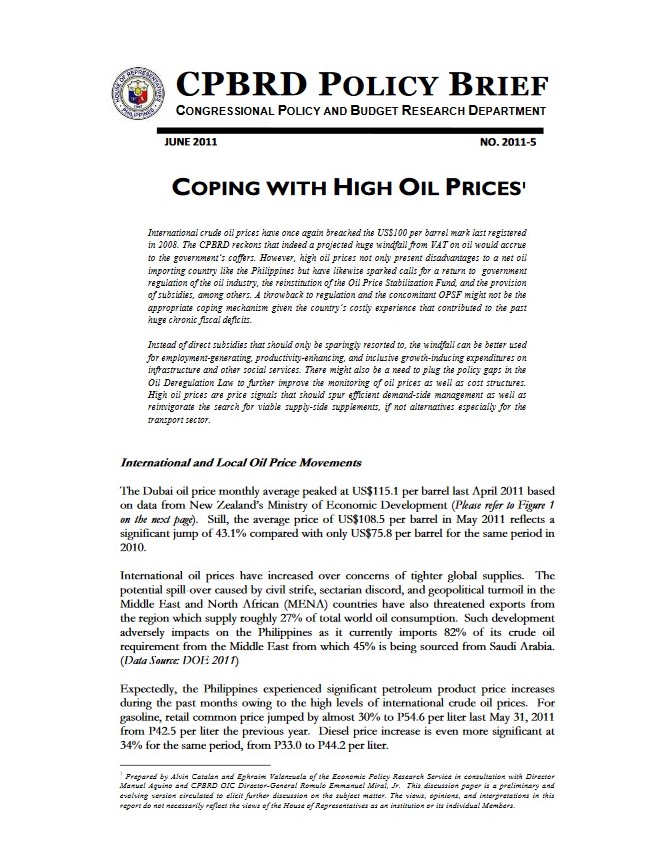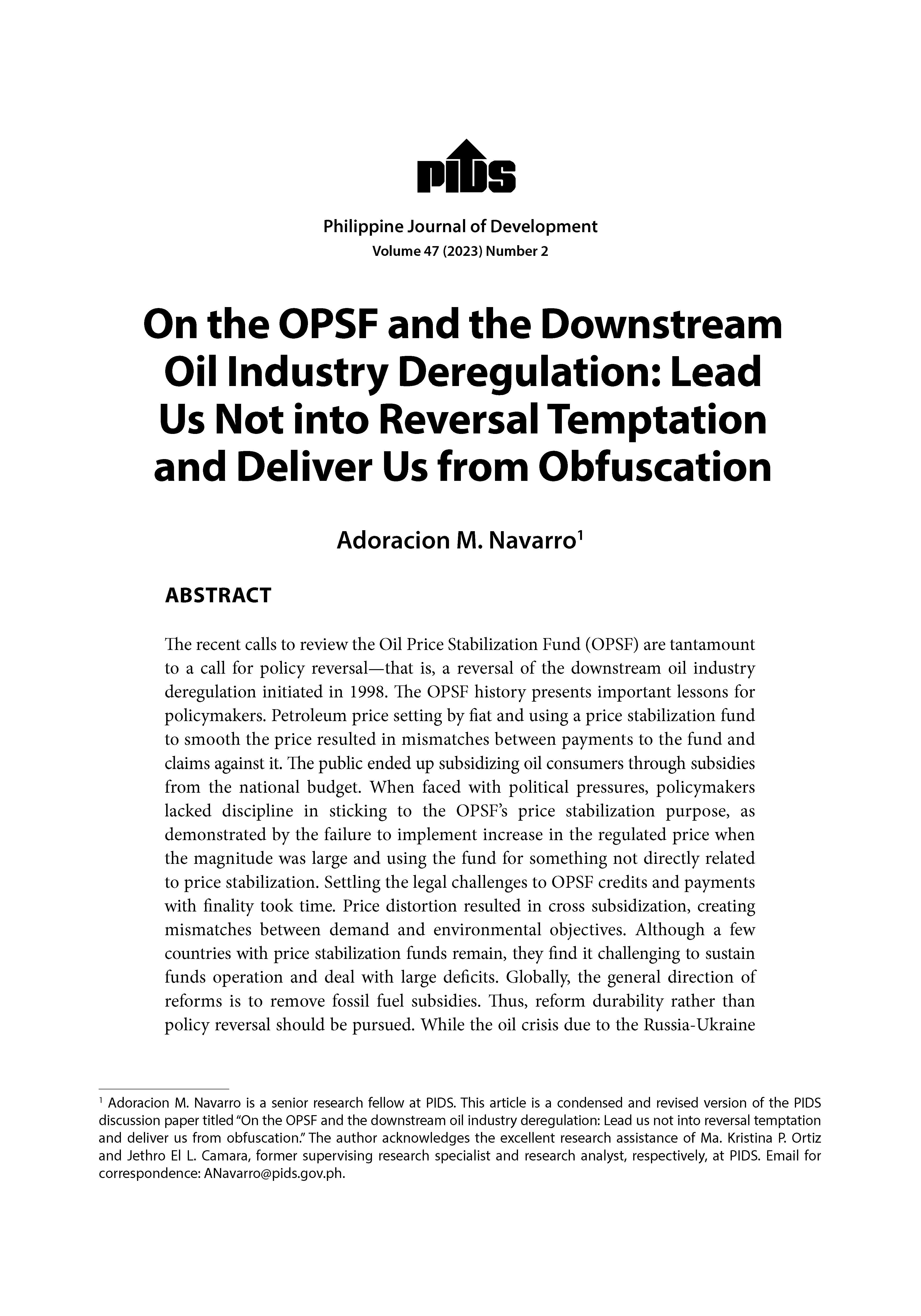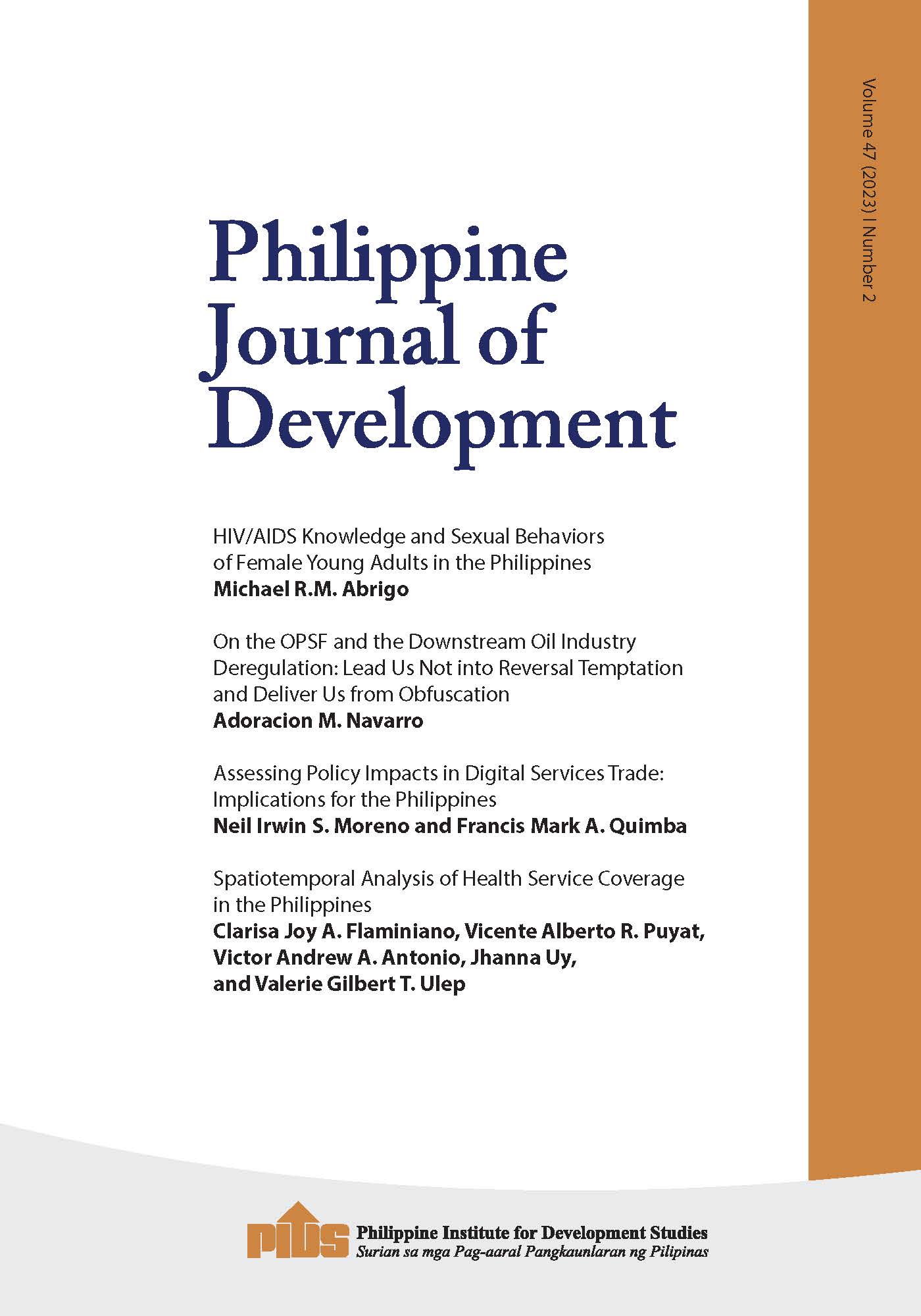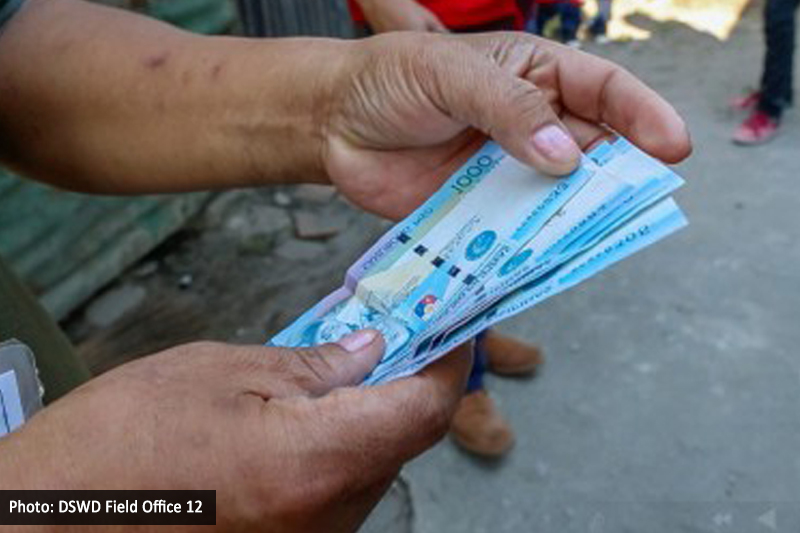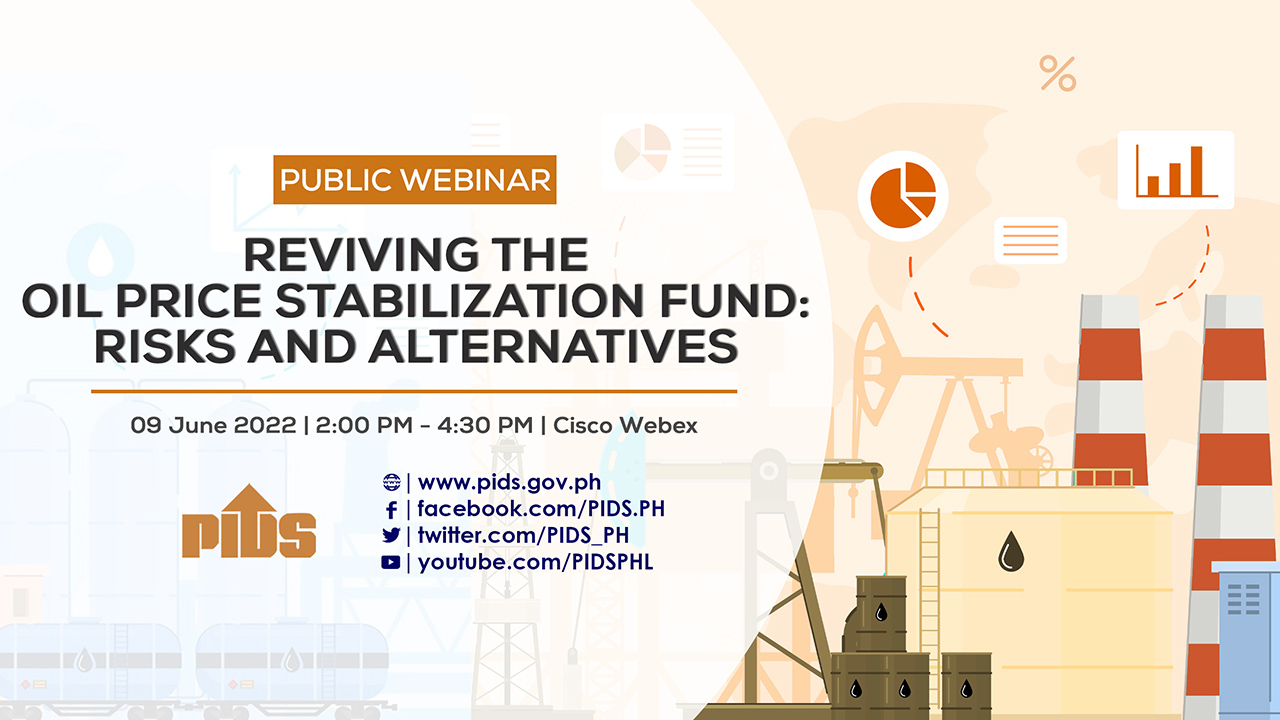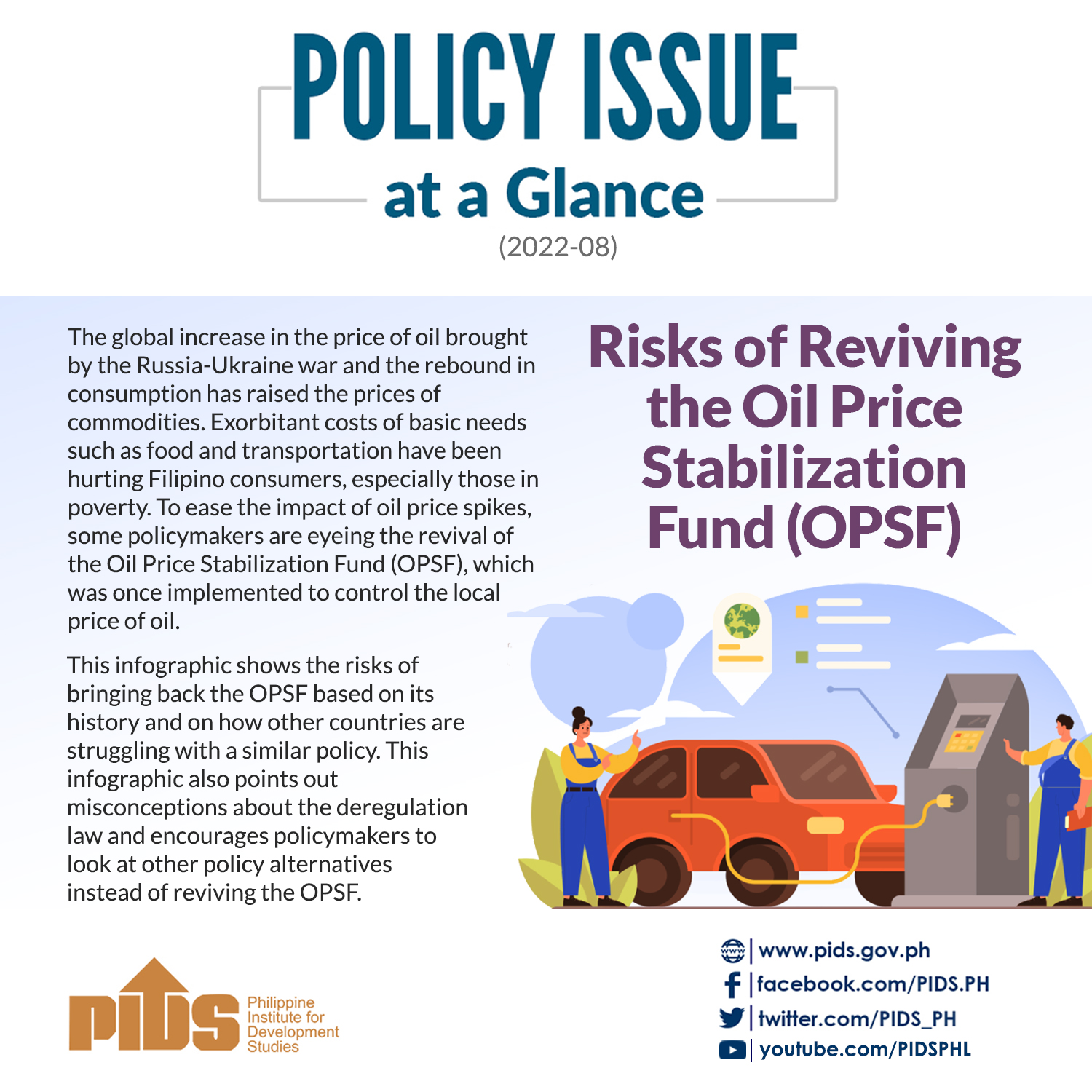The recent calls for the revival of the Oil Price Stabilization Fund (OPSF) are tantamount to a call for a policy reversal, that is, reversal of the downstream oil industry deregulation that began in 1998. The history of the OPSF presents important lessons for policymakers. Petroleum price setting by fiat and using a price stabilization fund to smooth the price resulted in mismatches between payments to the fund and claims against it. The general public then ended up subsidizing oil consumers through subsidies from the national budget. When faced with political pressures, policymakers also lacked discipline in sticking to the price stabilization purpose of the OPSF, such as failing to implement the increase in the regulated price when the magnitude was large and allowing the use of the fund for something not directly related to price stabilization. Settling the legal challenges to OPSF credits and payments with finality also took time. Price distortion also resulted in cross-subsidization that created mismatches between demand and environmental objectives. Although there remain a few countries that have price stabilization funds, all of them are finding it hard to sustain funds operation and dealing with large deficits. Besides, the general direction of reforms globally is to remove fossil fuel subsidies.
Therefore, rather than policy reversal, reform durability should be pursued. Although the present oil crisis triggers questions on downstream oil industry deregulation, this should be seen as an opportunity to lock in reforms through a dedicated communication campaign that protects the public from disinformation and enables them to understand the premise in and the promises of the deregulation. Policymakers can also make additional commitments to stay the course through legislative amendments and supplemental issuances that cement and improve, rather than reverse, the reforms. Among the proposed legislative amendments, the ones that aim to strengthen and improve the deregulation law are the proposals on minimum inventory requirement and retail price unbundling. Having a strategic oil reserve also deserves examination, which, if proven feasible and affordable, should be viewed as strictly a buffer during instances of severe oil supply disruption rather than as a regular price stabilization tool. Lastly, having targeted assistance programs that facilitate direct income transfer to the poor is preferable to the OPSF and implementing these effectively is also a way to lock in reforms.
Comments to this paper are welcome within 60 days from the date of posting. Email publications@pids.gov.ph
Citations
This publication has been cited 19 times
- Ansar News. 2022. PIDS nixes OPSF return, pitches other measures. Ansar News.
- Daily Tribune . 2022. COMMENTARYBeware of knee-jerk reactions. Daily Tribune .
- DailyGuardian. 2022. Amid rising global oil prices: Targeted subsidies for the poor better than reviving the OPSF – study. DailyGuardian.
- Dipasupil, Reg. 2023. Junk oil deregulation instead of fare hike, transport group tells gov’t. Philippine Collegian.
- Flores, Alena Mae. 2022. New oil price increase set. Manila Standard.
- Guillang, Michelle. 2022. New energy chief named. Tribune.net.
- Lagare, Jordeene. 2022. Gov’t think tank warns against oil deregulation backslide. Inquirer.net.
- Lalu, Gabriel Pabico. 2022. Bongbong Marcos urged to revive dad’s oil price stabilization fund. Inquirer.net.
- Lalu, Gabriel Pabico. 2022. Bongbong Marcos urged to revive Marcos Sr’s oil price stabilization fund. Asia News Network.
- Lectura, Lenie. 2022. Fuel-price quandary. BusinessMirror.
- Magno, Alex. 2022. Charges. Philippine Star.
- Myrna M. Velasco . 2022. Marcos gov't urged to pursue legislation on ‘fuel cost unbundling’. Manila Bulletin.
- Ordinario, Cai. 2022. Reviving OPSF to bring fiscal challenge–expert. BusinessMirror.
- RadyoMaN Manila. 2022. Mga nagsusulong sa muling pagbuhay sa Oil Price Stabilization Fund, pinaghihinay ng DOE. RadyoMaN Manila.
- Romero, Jasmin. 2022. Revival of oil price stabilization fund 'anti-poor': PIDS. ABS-CBN.
- Servallos, Neil Jayson. 2022. LTFRB: Higher TNVs fares under review. One News.
- The Philippine Star. 2022. LTFRB: Higher TNVS fares under review. The Philippine Star.
- Velasco, Myrna. 2022. OPSF, not solution to stabilize oil prices – PIDS. Manila Bulletin.
- Yang, Angelica. 2022. Oil Price Stabilization Fund revival will work against the poor — state think tank. Philippine Star.

